World War II:
Twice within twenty-five years has the world been rocked by world wars. On both occasions, the starting point was the ambition of Germany to dominate the world, her pride in her science and the confidence in her strength. The First World War of 1914-18 ended with aerial bombardment; the Second World War of 1939-45 ended with the dropping of atom bombs on the Japanese cities of Hiroshima and Nagasaki. They were fought with the avowed object of making the world safe for democracy; they were wars to end the war. In both, England and the U.S.A. inflicted a crushing defeat on Germany.
The first war ended with the signing of the Treaty of Versailles. Germany lay broken and bankrupt. But out of her ruins rose her man of destiny, Hitler the Fuehrer. Germany quickly rallied around its Nazi Party. Defeat disappeared, frustration was gone; the Germans were fired with faith in their destiny. They believed they were a superior race, born to rule over the less civilized nations. In Italy, the other dictator, Mussolini, had already come into power. Germany and Italy were Axis powers. Japan joined the Axis later. Their enemies were the Allies- England, France, the U.S.A. and Russia.
The stage was set for the Second World War. It was a dreadful drama; in which Hitler was the chief actor for a while, and later, Churchill, Roosevelt and Stalin stood in the centre of the stage. Mussolini played second fiddle to Hitler. He was less of a help than a hindrance. It was a war between the Allies and the Axis powers. It was a battle between democracy and dictatorship. On the one side were ranged Nazism and Fascism; on the other were the democracies and people’s governments. The war was fought on the land, the sea and in the air. It was a war of aerial bombardment in which civilians and soldiers alike were killed. It was a war of tanks and aeroplanes. It started with thumping victories for Germany, it ended with the sudden defeat for Japan.
The world had been in the grip of war fever for some years. Hitler’s military machinery was making marvellous progress. Armaments race had been going on in other countries. Hitler held in his hand the keys of peace and war. He had conquered territories not by war, but by blackmail or threat of war. He annexed Austria. Czechoslovakia, the Saar and Rhineland without firing a shot. Hiler’s word was law in the world. Nations were anxious to be in his good books. His star was in the ascendant, his prestige was at the highest; the German nation stood behind him like one man.
The war clouds were gathering on the horizon. Everywhere people were excited and confused. Businessmen stood waiting for a war-time boom and high profits. Statesmen racked their heads, soldiers waited for their opportunity. Warlords and generals were coming out of their obscurity. Warmongers welcomed this dance of death and destruction. In India, the unemployed waited impatiently for it in the hope of getting war-time jobs, while the patriots saw in the war the chance of India’s Independence.
The zero-hours struck on September 1, 1939. Hitler attacked Poland. England and France declared war on Germany. World War II had begun. As yet the U.S.A. stood aloof; as yet Russia was a potent ally of Germany.
Hitler won victory after victory. Soon almost the whole of Europe lay vanquished at his feet. Poland went under in four weeks. Holland fell quickly before the German onslaught. Denmark was conquered on the telephone- so people described its quick defeat. Belgium stood for a while but soon capitulated (surrendered). The British armies were evacuated from Dunkirk by the British Navy. Saving so many British soldiers was the greatest victory in this great defeat. Next came the turn of France. France, which had the reputation of having the best land army, crumbled in ten days, like a house of cards. France was over-run in 1940 and England seemed to be the next victim of aggression.
The fall of France was the darkest hour for England. England was left alone. As her war-time Premier, Churchill declared, “We are fighting by ourselves alone but we are not fighting for ourselves alone. We are fighting for the cause of democracy”. Statesmen quoted the example of previous wars, in which England had suffered early reverses, but won victories in the end. England loses battles but wins wars. In Churchill’s England, Hitler’s Germany had found a formidable rival. The war leader had put new life and new blood in the nation. They were ready to do or die. The liberty-loving Britons rose ‘to strive, to seek, to fight and not to yield’. England grew stronger through defeats. Churchill steeled their hearts and put iron in their nerves. Hitler’s bombers, sometimes even 1,000 at a time, dropped constant bombs on London and other cities, but Hitler failed to crush their spirit or lower their morale. As Churchill said, “Let Hitler do his worst and we will do our best”. The Victory Campaign spread to all Allied countries. Everywhere there was the letter V for victory. Churchill gave the V salute; there was the V sign outside houses, offices, cars and buses, trains and tramways- in fact everywhere. Churchill enthused the British nation. From the radio, he broadcast-
| “In the fell clutch of circumstance I have not winced nor cried aloud; Under the bludgeoning of chance My head is bloody but not bowed”. |
England took all the pounding and all the bombardment but stuck to her guns. The German superiority in the air was three to one. England expected more aeroplanes from the U.S.A. England told America, “Between you and Hitler stands the British Navy. If England is defeated, Hitler will get the British Navy and attack the U.S.A.” Still, the U.S.A. sat on the fence and remained neutral.
Hitler had no ships. He could not attack England. The water of the English Channel saved England. The 22-mile wide sea was England’s best defence against Hitler, her best anti-tank gun. Englishmen repeated Shakespeare’s famous lines about England:
| “This royal throne of kings, this sceptred isle, This earth of majesty, this throne of Mars, This other Eden, demi-paradise, This fortress built by Nature for herself, Against infection and the hand of war”. |
England remained unconquered. But events moved very fast. Italy, the junior partner of Germany, attacked Greece but could make no headway. When German troops came to Greece, Greece fell. Hitler attacked Crete, an island in the Mediterranean. Hitler used no ships. He attacked it only from the air. Hitler’s parachute army dropped from the aeroplanes on the island like drops of rain. Air-borne troops landed. Aerodromes were captured. Hitler won. Crete was not so important. Hitler was making an experiment to see if an island could be taken by aeroplanes alone without the help of ships. If he could win Crete from the air, then he could also win the island of England with aeroplanes alone. The attack on Crete was a full-dress rehearsal for an attack on England. The rehearsal was successful, but the drama of England was never staged.
A new incident changed the entire shape of war. Russia was an ally of Germany. Hitler took a fatal step; he attacked Russia. In the beginning, the German offensive made marvellous progress. The U.S. leaders said that the German attack would go through Russia, as the knife passes through the butter without any resistance. Hitler won quick victories in Russia. He was knocking outside the two great cities of Russia Moscow and Leningrad. The third city of Russia, that of Kiev, was actually taken by Hitler. Russia seemed to be on her last legs. The U.S.A and England were helping Russia. It was the darkest hour for Russia. All seemed lost for her.
But now Nature came to Russia’s help. Russia had been the grave of Napoleon. Napoleon had been defeated not by the Russian Army, but by the Russian winter. The same fate awaited Hitler. As Churchill said, “Russia has two invincible generals, General Winter and General Mud”. The German army could do nothing in winter and when summer came Russia too had gained her feet. Hitler’s armies attacked the town of Stalingrad. There was the bloodiest fighting in the streets of Stalingrad. Winter was fast approaching. As a British General said, “The moths are eating the hours that can give victory to Germany”. Russia won the battle for Stalingrad. Stalingrad was the turning point of the war. Stalingrad laid the foundations of Stalin’s grand victory and prestige. Russia had been the grave of Napoleon; it proved the grave of Hitler.
In the meantime, Japan had jumped into the war on December 7, 1941. The Far East was all aflame. While the Japanese ambassador was talking peace in the U.S.A., the Japanese Air Force attacked the U.S. ships, which were lying unprepared and unprotected at Pearl Harbour. America suffered a crushing defeat, but Pearl Harbour brought the U.S.A. into the war on the side of the Allies. The Japanese victories seemed to cast even Hitler’s blitzkrieg (lighting attacks) into the shade. The Japanese sank the two biggest battleships of England, the Prince of Wales and the Repulse. The British Navy suffered its greatest loss in history. All England was stunned. Japan took Hong Kong. Even Singapore, the greatest fortress of the Far East, fell to the Japanese. Burma was in Japanese hands. The Japanese armies and Netaji’s I.N.A. crossed into the territories of India. The Congress leaders were all in British jails.
Meanwhile, the Russian steamroller had been crushing and pushing back the Germans. The British armies were taking back the portions of Africa, which the Axis forces had over-run. Mussolini was in prison. But the German Air Force effected a dramatic rescue of Mussolini. But, later Mussolini was again caught by his countrymen and shot dead. This was the ignoble exit of one director.
The days of Hitler were also numbered. The Allied armies commanded by General Eisenhower, made a landing in France which was in German hands. They liberated France and carried the war into the heart of Germany. Germany crumbled and the British, the Americans, the French and the Russians were in Berlin, the capital of Germany. This was the end of Hitler and his dreams of world conquest.
Still, the power-intoxicated Japan remained to be dealt with, though Hitler’s fall had shaken her position. But the two atom bombs dropped on the Japanese cities of Hiroshima and Nagasaki cut short the war and brought it to a sudden close. Russia declared war on Japan. during the last few hours ao as to get a share in the victory. Thus went down the curtain on the play which was begun on September 1, 1939.
The chief actors of the defeated side met ignoble death. Mussolini had already been shot dead. Hitler committed suicide in the hour of his defeat. Himmler, the Gestapo chief (secret service chief), also succeeded in committing suicide. Other leaders like the fat Goering, Commander-in-Chief of Luftwaffe (German Air Force), and the Propaganda Minister, Dr Goebbels, were caught, tried by a Military Court and hanged. Germany was occupied by the big Four Powers and Japan was till lately ruled by the U.S. General, Mac Arthur.
Churchill and Roosevelt had signed the famous Atlantic Charter in the mid-Atlantic Ocean. It guaranteed freedom to all nations and men. The Atlantic Charter is the basis of the United Nations.
The war changed the balance of power. The Anglo-French leadership of Europe that Hitler wanted to break, was broken though Hitler himself was defeated. France, after tasting slavery under Hitler for three years, lost its former importance. England’s position as the number one power passed on to the U.S.A on the other side of the Atlantic. England won the war but lost her empire. India, Pakistan, Burma, Ceylon and Palestine threw off the British yoke. Rather, Britian walked out and conferred independence on them. Out of the wreck of war rose a new power, Soviet Russia, as a top power, challenging the leadership of the U.S.A. The world was divided into Russian and Anglo-U.S. blocs, though India stood out from both. The war-time Allies became enemies in peacetime. No sooner did World War II end, than there was the talk of a Third World War. Man has learnt nothing and forgotten nothing out of the bloodiest war in world history.
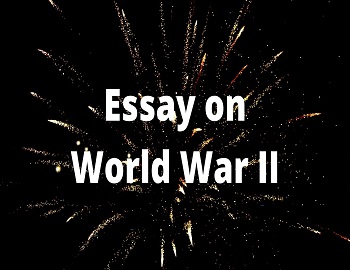
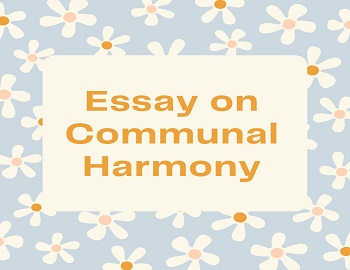
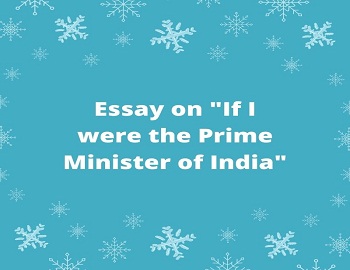
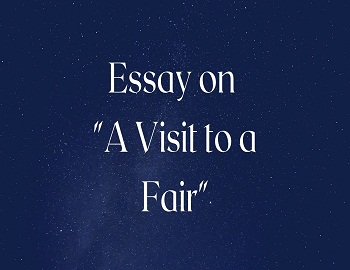

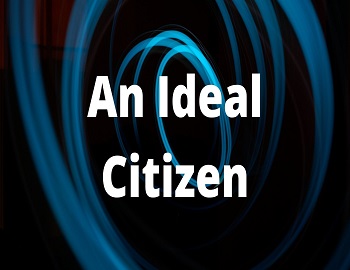
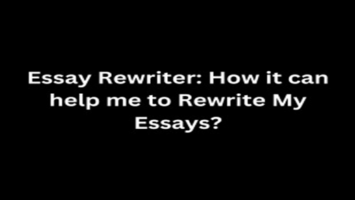
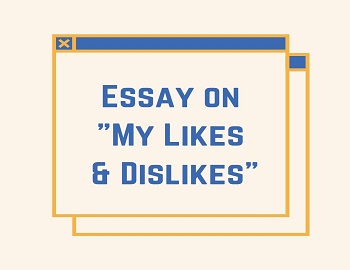
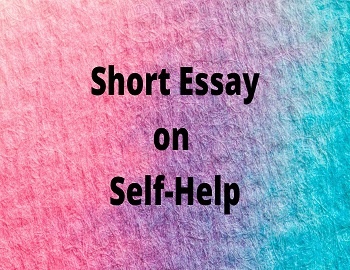
Comments (No)